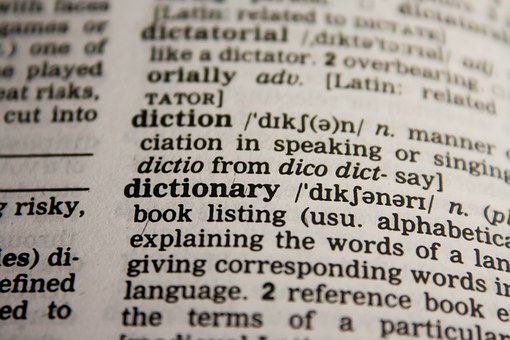3rd Grade – The Pivotal Year in Reading
 If you were asked to name a pivotal year in school, one that influenced future academic success for years, what would you say? Junior high, senior year of high school, the first year of college? While these are all important landmarks in an individual’s education, I would argue one of the most critical years is third grade.
If you were asked to name a pivotal year in school, one that influenced future academic success for years, what would you say? Junior high, senior year of high school, the first year of college? While these are all important landmarks in an individual’s education, I would argue one of the most critical years is third grade.
Yep, you heard that right, third grade. The third grade represents a major shift in what students learn and how they are taught, especially when it comes to reading. The focus shifts from learning to read – decoding text and sight words – to reading to learn. Instead of simple sentences and predictable spelling patterns, students are now being asked to read about a topic and learn from a text.
There is also a shift from reading primarily fiction text to reading mostly nonfiction. Students are asked to read, absorb, and use information. This is a pivot point for many readers, especially those who struggle. If children are not fluent readers by the time they enter third grade, they are likely to fall behind, and the gap will continue to grow if appropriate reading intervention is not implemented. This has major effects on a child’s academic future. A study conducted in 2011 by Donald J. Hernandez and released by the Annie E. Casey Foundation found that students who lacked proficiency in third-grade reading were four times as likely as their on grade level peers to drop out of high school.
Research shows that students with a range of reading disabilities who receive appropriate intervention focused on accuracy and fluency by the end of 2nd – 3rd grade will usually catch up (Torgesen et al., 2003). Unfortunately, students who get appropriate intervention after 3rd grade do not catch up in terms of reading fluency. This group of students may get close to their peers in accuracy; however, fluency, while it improves over time, remains behind peers and presents a significant reading impediment.
disabilities who receive appropriate intervention focused on accuracy and fluency by the end of 2nd – 3rd grade will usually catch up (Torgesen et al., 2003). Unfortunately, students who get appropriate intervention after 3rd grade do not catch up in terms of reading fluency. This group of students may get close to their peers in accuracy; however, fluency, while it improves over time, remains behind peers and presents a significant reading impediment.
If your child is behind in reading as they approach or enter third grade, it is imperative that they get the reading intervention they need. Here are a few ways that you can help support your child with reading at home.
- Focus on reading a variety of texts. Even if your child hasn’t even started school yet, make sure that you are reading both fiction and non-fiction to them. Read functional texts as well, like the back of the cereal box, graphs, signs, and directions. Point out different text types and what their purpose is (to inform, to entertain, to teach how to do something).
- Work on phonological awareness skills. From preschool, children need to be working on manipulating the sounds in words and syllables. Ask your child to stretch out the sounds in words, blend them together, break words into syllables and generate rhyming words. For a more complete list of ways to practice phonological awareness skills, check out our blog dedicated to the subject.
- Make sure your child is still getting explicit phonics instruction. Children who struggle with reading need direct and explicit instruction in letter sounds. Check out our blog for some ideas to practice phonics skills. If your child shows significant deficits in phonics, you may want to think about signing them up for our online reading tutoring program.
- Have your child read out loud. Parents can often feel a bit blindsided because they think their child is doing fine. Starting in about third grade, we tend to stop asking students to read out loud. This makes it difficult to know if your child is struggling. You can make reading out loud fun and even trick your child into thinking it is a game. One activity to encourage reading out loud is to trade off. You start reading a text and point to your child when you want them to take over. Go back and forth until you finish the text. You can also have your child record themselves reading a story and play it back so they can hear how they sounded. Some children love to read to their pet. Particularly older children, as they are not self-conscious while reading to their furry friend. This may be the only time an older child will willingly read aloud. Encourage them to use appropriate expression and even voices for different characters. Also, like with other texts, make sure that you are reading a variety of fiction and non-fiction text.
- Ask your child about what they are reading. If your child is reading a fiction text, a few good go-to questions are: Who are the characters? What is the problem in the story? What is the solution? Would you have done anything differently? Why do you think he/she/they did that? How is the character feeling right now? Make sure to always ask for justification from the text. For example, if your child says a character is sad, make them prove it using examples from the story. If your child is reading a non-fiction text you can ask things like: What is the author’s purpose? What is the text mostly about? How do you know? What type of text is this? Why did the author write the text? Is there anything you would like to know more about?
- Encourage your child to monitor their own comprehension. Often, children who struggle don’t know when they don’t understand what they are reading. Encourage your child to identify when they are having difficulty and go back and reread. You can also have them take notes and ask questions as they read. Sticky notes or a reader’s notebook are a great way to get kids excited about this task.
 While these are all great ways to help your child who struggles to read, the best and most important thing you can do as a parent is getting your child the reading intervention they need. For children with reading difficulties, our online reading tutoring provides a Structured Literacy approach that has been proven time and time again to be effective.
While these are all great ways to help your child who struggles to read, the best and most important thing you can do as a parent is getting your child the reading intervention they need. For children with reading difficulties, our online reading tutoring provides a Structured Literacy approach that has been proven time and time again to be effective.
Our reading clinicians are skilled at identifying areas for growth, and our program is tailored to fit your child. Plus, since it is all online there are no commutes or time wasted sitting in a waiting room. We also provide you will tools and skills to help your child at home.
If you suspect your child has trouble with reading, don’t wait for them to get further behind. Contact us today to get them the help they need.
Becky Welsch
RW&C, LLC
www.rwc4reading.com
Becky Welsch has a Master’s degree in K-8 Education. She is certified to teach in the state of Arizona and has special endorsements in the areas of English Language Learners and Reading. Becky has worked with struggling readers in the primary as well as secondary grades. Her experience also includes intensive reading intervention both in person as well as with online teletherapy. Becky has experience with early literacy skills like phonics and phonemic awareness development. She has used several structured literacy programs including Language! and Spalding phonics. She is also trained to administer DIBELS tests and has worked with the DIBELS Next reading remediation program.

 When students struggle with reading and literacy, it is imperative that their reading intervention go hand in hand with writing and explicit spelling instruction. Often, in the classroom, it is the case that spelling instruction is an after-thought and is confined to spelling drills and memorization (Birsh, 2005). However, for students who struggle with
When students struggle with reading and literacy, it is imperative that their reading intervention go hand in hand with writing and explicit spelling instruction. Often, in the classroom, it is the case that spelling instruction is an after-thought and is confined to spelling drills and memorization (Birsh, 2005). However, for students who struggle with  I cringe thinking about some of my first parent/teacher conferences when I told parents “there is always spelling check.” I adopted the common classroom philosophy that if students were immersed in print, and taught to read, they would somehow magically learn to spell (Birsch, 2005).
I cringe thinking about some of my first parent/teacher conferences when I told parents “there is always spelling check.” I adopted the common classroom philosophy that if students were immersed in print, and taught to read, they would somehow magically learn to spell (Birsch, 2005).

 Our reading clinicians also have extensive knowledge of child development and know when to correct spelling and when to allow children to rely on inventive spelling that is based on their own internalized understanding of phonemes and graphemes. This allows us to teach more than memorization because we teach the skills that students are developmentally ready for and not skills that are above their level. Just like in reading, in spelling it is “not the age, it’s the stage.” Students should not be pushed to memorize spelling patterns they are not ready for because it will ultimately do more harm than good.
Our reading clinicians also have extensive knowledge of child development and know when to correct spelling and when to allow children to rely on inventive spelling that is based on their own internalized understanding of phonemes and graphemes. This allows us to teach more than memorization because we teach the skills that students are developmentally ready for and not skills that are above their level. Just like in reading, in spelling it is “not the age, it’s the stage.” Students should not be pushed to memorize spelling patterns they are not ready for because it will ultimately do more harm than good.

 In order to serve the student and increase their reading skills, the correct diagnosis of the issue is essential. This is why the reading clinicians at RW&C give each student a variety of
In order to serve the student and increase their reading skills, the correct diagnosis of the issue is essential. This is why the reading clinicians at RW&C give each student a variety of  Coming from a classroom background, I know that often upper-grade teachers are not trained in early literacy and often do not have the resources that students need to master early reading skills. If your older child struggles with reading, they may not get the help they need in school.
Coming from a classroom background, I know that often upper-grade teachers are not trained in early literacy and often do not have the resources that students need to master early reading skills. If your older child struggles with reading, they may not get the help they need in school. In previous blogs, we’ve discussed the importance of
In previous blogs, we’ve discussed the importance of  As your child gets older and moves into upper elementary and middle school, you can encourage them to use post it notes as they read to ask questions, record unknown vocabulary words, and note any surprising information. This can be a great way for them to interact with the text and for you to monitor their understanding. Plus almost all kids love getting to use post it notes so it may even motivate them to read more.
As your child gets older and moves into upper elementary and middle school, you can encourage them to use post it notes as they read to ask questions, record unknown vocabulary words, and note any surprising information. This can be a great way for them to interact with the text and for you to monitor their understanding. Plus almost all kids love getting to use post it notes so it may even motivate them to read more.